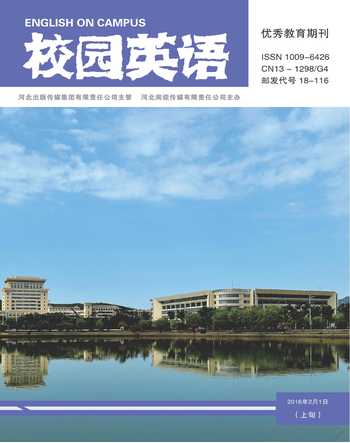The Effect of Error Correction on L2 Gramma
Shaai Wang
In the second language acquisition and English as Second Language learning (ESL) process, each teacher inevitably finds various kinds of language mistakes that learners made. In the process of foreign language learning, learners tend to make various kinds of errors. In the traditional view for the ESL writing courses, we cannot obscure the fact that grammar correction is an indispensable part of it. However, whether grammar errors should be corrected is always a controversial issue that aroused a wide concern.
It is particularly true for that over emphasis on grammar correctness may damage students confidence. The goal for both teachers was to help students learn to avoid making particular grammatical errors. This focus, however, also has a potentially negative result. First, students may actually take a rather pragmatic approach to meeting this criterion. Second, students may avoid expressing complex ideas that would require the use of more challenging linguistic structures. Teachers can first affirm the virtues of students writing and then points out the weakness of it.
Grammar correction time also exerts a profound influence on the success or outcome of the correction. The instant help of teachers in the process of writing is more efficient for students than after writing.
The methods of grammar correction also count a lot. In fact, students do hope his or her composition can get the affirmation of the teacher. So we should encourage and praise the students once we find their compositions sparking, even if only one or two sentences are written beautifully. In the teaching, wed better encourage students to do more English writing and error correction training, not just read or recite composition examples.
Self-confidence is the mother of success in English learning. Error correction should not damage the honor and confidence of students as premise. Therefore, the teacher shouldnt lay too much emphasis on errors in correcting students composition. Moreover, teachers had better not correct errors in public but privately. In this way, students will not be too anxious or depressed because of others opinion. The errors in the composition become less and less or even no errors, which is the desire and target of the students to learn English.
As for the necessity of error correction, I claim that grammar correction is of essential importance and cannot be abandoned. Firstly, there is great significance of grammar correction that means a lot both to teachers and students. On the part of students, learning English is a process of making hypothesis and testing it; In writing without correction, students are in confusion whether what they have learned has been correctly applied or not. As far as the teacher is concerned, through correction, he gets deep in touch with errors by each student and thus can give him individual help and ultimately improve his writing readability. He may also, through effective correction, get information about students difficulties and thus improving and modifying his writing teaching in the long run.
Guided by such a belief, a language teacher must try to “reinforce” correct response and make it possible to occur and finally become a habit. If correct and accurate input is given at the beginning with proper reinforcement followed, a good language habit is likely to be formed and vice-versa. They are thought to be difficult to overcome as long as they find their way into the language. Therefore, immediate correction is called for the success of evaluation.
To summarize, ESL learning is the process in which ESL learners continuously make errors and correct them, and also a process of learning from errors and gradually approaching to the target language (L2). Error correction can help students recognize the longstanding and deep-seated problems in English writing. Moreover, it can help teachers have a comprehensive knowledge of students shortages, troubles and even their learning attitudes and hospitalities.
This paper tries to explore the necessity of grammar correction based on two former essays written by Truscott and Ferris. I propose that attention should be given to investigating which methods, techniques, or approaches to error correction lead to short-term or long-term improvement. What we have found by now is only suggestive, not conclusive and further researches need to be undertaken on this issue. Lets keep looking!

